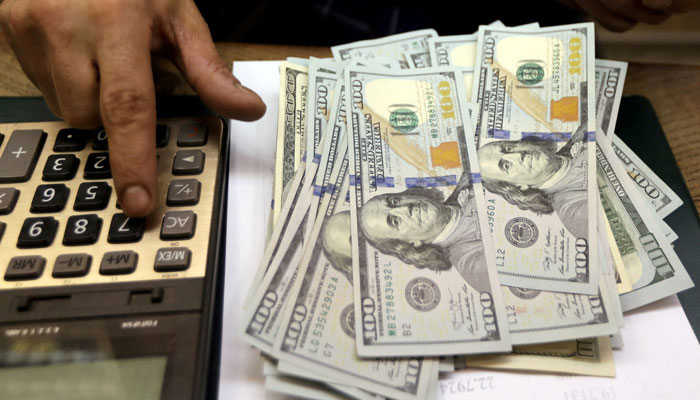How to attract capital
LAHORE: Capital thrives in environments that offer stability, rule of law and freedom from corruption. Nations plagued by systemic corruption and inconsistent policies often face an exodus of domestic and foreign capital.
In Pakistan, both the perception and reality of corruption, coupled with inefficient institutions and erratic policies, deter long-term investments. Businesses prioritise risk management and predictability, making robust governance essential. A strong competition policy ensures fair markets, prevents monopolies and supports consumer choice, creating a secure environment for capital by reducing uncertainty and fostering innovation.
Pakistan’s Competition Act, 2010 is considered relatively robust within the region. It aligns with global standards by targeting anti-competitive practices such as cartels, abuse of dominance and deceptive marketing. However, weak enforcement significantly undermines its potential.
Ineffective implementation of laws perpetuates inefficiencies and fosters unfair practices. For instance, cartelisation is rampant in sectors like sugar, cement and pharmaceuticals, where price-fixing allegations persist. Weak enforcement also leads to litigation delays. Cases involving penalties and revenues worth hundreds of billions of rupees remain unresolved with the Federal Board of Revenue (FBR) and the Competition Commission of Pakistan (CCP), locking up resources that could otherwise fuel economic growth.
When competition laws are poorly enforced, barriers to trade and market inefficiencies arise. High tariffs and duties, especially on raw materials, escalate production costs and stifle competitiveness. For example, higher duties on raw materials than on finished goods shield inefficient domestic industries while making Pakistani exports less competitive globally.
This disparity discourages industrial growth and value addition by increasing input costs for manufacturers, favouring traders of finished goods over local producers. Small and medium enterprises (SMEs), the backbone of Pakistan’s economy, struggle to compete under inflated raw material costs, hindering industrial diversification and exports.
Non-tariff barriers, such as cumbersome customs procedures and inadequate trade facilitation, further restrict the free flow of goods. These barriers suppress new market entrants, stifle innovation, and limit competition.
Modernising judicial processes, particularly in commercial courts, is critical for attracting investment. Delays in resolving commercial disputes erode investor confidence and increase the cost of doing business. Prolonged uncertainties negatively impact cash flow and operational planning. Foreign investors, who value predictable legal outcomes, are especially deterred by unresolved cases.
Government policies often exacerbate competition issues. Subsidies to specific sectors and monopolistic structures distort market dynamics and breed inefficiencies. Regulatory bodies frequently fail to hold state enterprises accountable, while subsidies, such as those in the energy sector, disproportionately benefit a select few.
Markets alone cannot foster growth; they are merely tools, akin to currency. Economic outcomes depend on the strength of governance, policies and enforcement mechanisms. Effective implementation of economic jurisprudence enhances efficiency, maximises welfare, and optimises output at the lowest cost, ultimately delivering higher value.
The four pillars crucial for sustainable economic growth -- strong institutions, robust infrastructure, a stable macroeconomic environment, and investment in health and education -- remain weak in Pakistan.
Addressing these gaps requires urgent action. Effective law enforcement, timely resolution of cases, and strict action against anti-competitive practices are essential. Rationalising tariffs, particularly on raw materials, can encourage local manufacturing and competitiveness. Transparent and stable economic policies are necessary to attract and retain investment. Expediting judicial efficiency in commercial dispute resolution will foster business confidence and pave the way for sustainable economic growth.
-
 Melissa Jon Hart Explains Rare Reason Behind Not Revisting Old Roles
Melissa Jon Hart Explains Rare Reason Behind Not Revisting Old Roles -
 Meghan Markle Eyeing On ‘Queen’ As Ultimate Goal
Meghan Markle Eyeing On ‘Queen’ As Ultimate Goal -
 Japan Elects Takaichi As First Woman Prime Minister After Sweeping Vote
Japan Elects Takaichi As First Woman Prime Minister After Sweeping Vote -
 Kate Middleton Insists She Would Never Undermine Queen Camilla
Kate Middleton Insists She Would Never Undermine Queen Camilla -
 King Charles 'terrified' Andrew's Scandal Will End His Reign
King Charles 'terrified' Andrew's Scandal Will End His Reign -
 Winter Olympics 2026: Lindsey Vonn’s Olympic Comeback Ends In Devastating Downhill Crash
Winter Olympics 2026: Lindsey Vonn’s Olympic Comeback Ends In Devastating Downhill Crash -
 Adrien Brody Opens Up About His Football Fandom Amid '2026 Super Bowl'
Adrien Brody Opens Up About His Football Fandom Amid '2026 Super Bowl' -
 Barbra Streisand's Obsession With Cloning Revealed
Barbra Streisand's Obsession With Cloning Revealed -
 What Did Olivia Colman Tell Her Husband About Her Gender?
What Did Olivia Colman Tell Her Husband About Her Gender? -
 'We Were Deceived': Noam Chomsky's Wife Regrets Epstein Association
'We Were Deceived': Noam Chomsky's Wife Regrets Epstein Association -
 Patriots' WAGs Slam Cardi B Amid Plans For Super Bowl Party: She Is 'attention-seeker'
Patriots' WAGs Slam Cardi B Amid Plans For Super Bowl Party: She Is 'attention-seeker' -
 Martha Stewart On Surviving Rigorous Times Amid Upcoming Memoir Release
Martha Stewart On Surviving Rigorous Times Amid Upcoming Memoir Release -
 Prince Harry Seen As Crucial To Monarchy’s Future Amid Andrew, Fergie Scandal
Prince Harry Seen As Crucial To Monarchy’s Future Amid Andrew, Fergie Scandal -
 Chris Robinson Spills The Beans On His, Kate Hudson's Son's Career Ambitions
Chris Robinson Spills The Beans On His, Kate Hudson's Son's Career Ambitions -
 18-month Old On Life-saving Medication Returned To ICE Detention
18-month Old On Life-saving Medication Returned To ICE Detention -
 Major Hollywood Stars Descend On 2026 Super Bowl's Exclusive Party
Major Hollywood Stars Descend On 2026 Super Bowl's Exclusive Party




